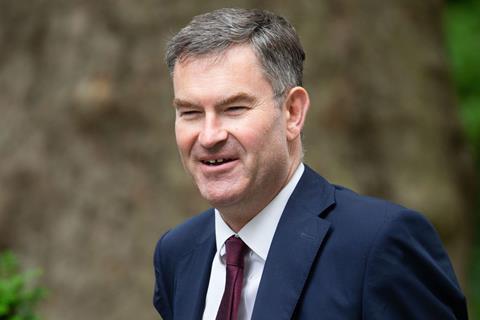Former Conservative justice secretary David Gauke has urged the government to be ‘brave’ in ending the prison population crisis – unveiling proposals that would see offenders hit with football and travel bans instead of being sent to prison.
Gauke was commissioned by lord chancellor Shabana Mahmood to review the sentencing framework and come up with proposals to ensure the number of prisoners never exceeds the number of jail cells.
Unveiling his recommendations today, Gauke said his measures, 'taken as a package', will ensure the government never has to rely on the emergency release of prisoners. He urged the prime minister and Mahmood ‘to act with bravery in their response’.
Inspired by reforms in Texas, the review proposes an ‘earned progression model’ that would enable offenders to be released early if they behave and comply with prison rules.

Read more
To reduce overreliance on custody, prison sentences under 12 months would be handed down only in ‘exceptional’ circumstances and the upper limit of suspended sentence orders would be raised. Low-risk offenders with high needs, such as pregnant women, would receive deferred sentences. Judges would have greater flexibility to impose travel, driving and football bans.
To effectively manage perpetrators of violence against women and girls, recommendations include expanding tagging of offenders and more specialist domestic abuse courts.
Gauke said: ‘Overcrowded prisons are leading to dangerous conditions for staff and contributing to high levels of reoffending. We cannot build our way out of it. To stabilise the prison system and end the dangerous cycle of emergency releases, the government must take decisive action.’
Law Society president Richard Atkinson said the review was correct to focus on alternatives to custody and further investment in probation. However, to ensure public faith in the criminal justice system, ‘there must be investment in all parts of the system, which are interconnected'.
This article is now closed for comment.



























21 Readers' comments